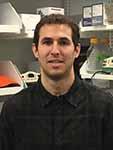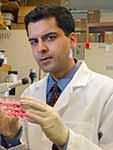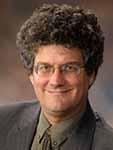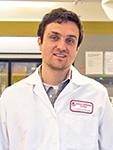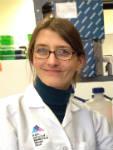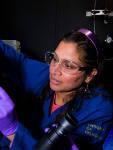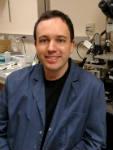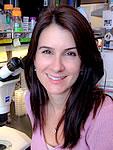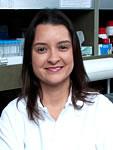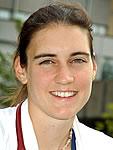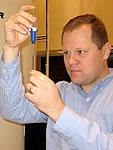Cedars-Sinai Medical Center, Los Angeles, CA
Identification of Sensory Neural Circuits Controlling Metabolic Disorders
Grant #1-15-INI-12
In order to adapt quickly to changes in environmental conditions and perception of internal senses (such as digestion, temperature, hunger, pain and blood pressure), mammals rely on a part of the brain called the hypothalamus to integrate a variety of signals into appropriate responses and meet energy demand. However, it is not well understood whether neurons involved in sensory perception have the ability to translate sensory information into metabolic responses through communication with the hypothalamus and other brain regions. By focusing on the critical senses of pain and smell, which play important roles in the perception of harmful conditions and nutrient availability, this project will identify components of the metabolic response that become disrupted in type 2 diabetes.
Through better understanding of these sensory systems, and how they impact metabolic activity, new therapies to treat type 2 diabetes may be identified.
University of California, San Diego
PTPN22: Model Gene to Unravel the Interaction between Genetics and Environment in Type 1 Diabetes
Grant #1-15-INI-13
A mutation in a gene called PTPN22 is one of the strongest known genetic risk factors for type 1 diabetes (T1D). Viral infections are important risk factors for development of T1D, and the PTPN22 gene may play a critical role in defense against viruses. This project will study whether the mutated PTPN22 gene predisposes individuals to T1D by decreasing the response to viral infections. The results from this study will elucidate the mechanism by which a genetic T1D risk factor combines with an environmental trigger to confer disease susceptibility. Importantly, if correct, this model suggests that protection from and/or aggressive treatment of viral infections could prevent T1D in people with this genetic risk factor, and will pave the way to preventative treatment strategies for individuals at high risk of developing T1D.
Accelerator awards
The University of Colorado Denver, Aurora, CO
The Role of Hybrid Insulin Peptides in the Development of Type 1 Diabetes
Grant #1-15-ACE-14
Type 1 diabetes (T1D) is an autoimmune disease that is mediated by the immune system's own T cells. Normally, T cells fight infection by mounting a response to foreign bodies, called antigens, when they are detected in the circulation. While the immune system has mechanisms to prevent T cells from recognizing self-antigens, in T1D those mechanisms fail and T cells inappropriately attack the body's own insulin-producing beta cells. In order to prevent or reverse the development of T1D it is therefore critical to understand why and how T cells are misguided. This project describes a modification to self-antigens that are recognized by T cells that trigger diabetes in a major animal model for T1D. The researchers hypothesize that the same modification is relevant in the development of human T1D. They will test this hypothesis using T cells that were isolated from the remaining islet tissue of deceased human T1D patients. Additionally, the researchers have identified a potential mechanism that leads to these antigen modifications. They will study the mechanism and test whether the formation of modified antigens can be chemically inhibited, thereby blocking destruction of insulin-producing beta cells and preventing type 1 diabetes.
North Carolina State University, Raleigh, NC and University of North Carolina at Chapel Hill
Bio-Inspired Synthetic Pathway for Closed-Loop Delivery of Insulin and Glucagon
Grant #1-15-ACE-21
A therapeutic system capable of automatically regulating insulin delivery in proportion to blood sugar levels is highly desirable for people with type 1 and advanced type 2 diabetes. Several synthetic glucose-responsive formulations for self-regulated delivery of insulin have been developed. However, there are numerous remaining challenges to crafting a biocompatible system that would be easy to administer, provide a sufficiently fast insulin response, and prevent hypoglycemia. Inspired by the natural insulin vesicles in pancreatic beta cells, this project will develop artificial "synthetic insulin vesicles". The hypothesis is that the materials will be able to regulate release of insulin at high blood sugar levels and inhibit its release within the normal glucose range. To prevent potential hypoglycemia, the project includes design of "synthetic glucagon vesicles" to counteract unexpected large releases of insulin. If successful, these systems can fundamentally change how type 1 diabetes is managed and reduce the burden of monitoring and treatment.
Harvard Pilgrim Health Care Institute, Harvard Medical School, Boston, MA
Understanding Pathways of Fetal Metabolic Programming to Stop the Transgenerational Risk of Diabetes
Grant #1-15-ACE-26
Exposure to maternal hyperglycemia in the womb is associated with significantly higher lifetime risk of type 2 diabetes (T2D). The exact mechanisms explaining this phenomenon are still unknown. This project will apply recent technological advances to examine differences in how epigenetic regulation (one of the mechanisms that controls gene expression) is linked to in utero exposure to diabetes. By following mother-child pairs throughout pregnancy and childhood, the study is expected to identify new information about which epigenetic adaptations across the human genome are implicated in linking maternal blood sugar to the offspring's future T2D risk. Revealing new information about how T2D is triggered in these children could aid development of early life prevention measures to reduce rates of diabetes in future generations.
Visionary awards
University of Notre Dame, South Bend, IN
A Strategy to Accelerate Diabetic Wound Repair
Grant #1-15-ACN-06
A serious complication of diabetes is the inability of wounds to heal, which contributed to 73,000 lower-limb amputations in the United States in 2010. Currently, no therapeutic agents for the treatment of diabetic wounds are approved and there is a paucity of research to understand why diabetic wounds are difficult to heal. Preliminary work has identified enzymes called "matrix metalloproteinases" (MMPs) that seem to influence wound healing in diabetic mice. In addition, a drug has been identified that selectively blocks the detrimental MMP, is not toxic to mice, and is poised for development as a topical therapy for diabetic wound healing. This project proposes to validate the beneficial and detrimental roles of MMPs in human samples and to understand how MMP inhibitor drugs may improve diabetic wound healing. The combination of studies applying selective MMP inhibitors and using samples from people with diabetes is expected to lead to a new treatment for this serious complication of diabetes.







